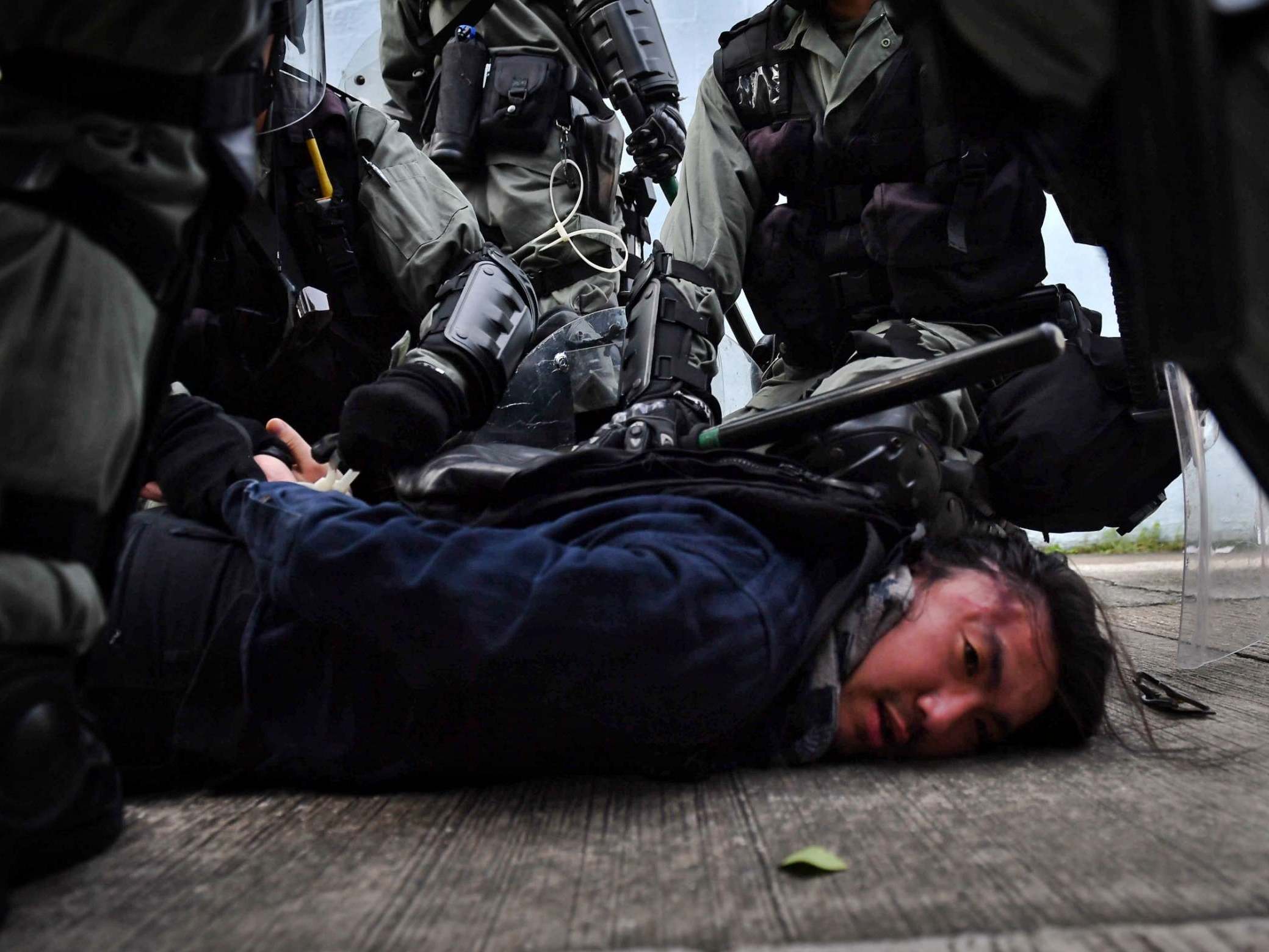Your support helps us to tell the story
From reproductive rights to climate change to Big Tech, The Independent is on the ground when the story is developing. Whether it's investigating the financials of Elon Musk's pro-Trump PAC or producing our latest documentary, 'The A Word', which shines a light on the American women fighting for reproductive rights, we know how important it is to parse out the facts from the messaging.
At such a critical moment in US history, we need reporters on the ground. Your donation allows us to keep sending journalists to speak to both sides of the story.
The Independent is trusted by Americans across the entire political spectrum. And unlike many other quality news outlets, we choose not to lock Americans out of our reporting and analysis with paywalls. We believe quality journalism should be available to everyone, paid for by those who can afford it.
Your support makes all the difference.Hong Kong’s chief executive has defended the new national security law imposed by Beijing last week, saying it was not all “doom and gloom”, despite global backlash over the sweeping legislation branding by activists as a “death knell” for the city.
Carrie Lam sought to assuage fears over the new legislation, which gives police powers to crack down on what China describes broadly as secession, subversion, terrorism and collusion with foreign forces.
“Compared with the national security laws of other countries, it is a rather mild law,” said Ms Lam. “Its scope is not as broad as that in other countries and even China.”
She added that the law would restore Hong Kong’s status as one of the safest cities in the world, after weeks of protests last year that sometimes turned violent as police used extreme force in clashes with demonstrators.
But citizens are becoming increasingly fearful for their safety and freedom of speech as the new law targets those who used their social media platforms to call for greater democracy and more police accountability.
Some pro-democracy slogans such as “Liberate Hong Kong, revolution of our time” have been criminalised under the legislation, which the Hong Kong government says has separatist connotations.
Individuals who post such messages could face fines of up to HK$100,000 (approximately £10,300) or a jail term of up to one year.
Joshua Wong, one of the city’s most prominent young pro-democracy activists, issued a plea on Tuesday for the world to stand in solidarity with Hong Kong, adding that the people of Hong Kong would “never give up and surrender to Beijing”.
Speaking to reporters outside a court where he and several other campaigners were facing prosecution for their involvement in last year’s protests, Mr Wong said: “We still have to let the world know that now is the time to stand with Hong Kong… We encourage the global community to let our voice be heard around the world.”
After the legislation came into force at the same time it was made public just before midnight last Tuesday, police arrested about 10 people for related offences the next day.

The legislation has been criticised and condemned by other countries, including the UK and the US, as well as rights groups who are concerned it undermines the freedoms guaranteed under the “one country, two systems” agreement as part of Hong Kong’s return to Chinese rule in 1997.
Both Hong Kong and Chinese government officials have said the law is vital to plug gaping holes in national security defences, exposed by the city’s failure to pass such laws by itself as required under its mini-constitution, the Basic Law.
Ms Lam said cases involving the new mainland agency in Hong Kong will be “rare” and that national security was a “red line” that should not be crossed.
She also said she could guarantee press freedom to the Foreign Correspondents’ Club (FCC) in Hong Kong if they in turn gave |a 100 per cent guarantee” they would not breach the new law.
According to the Hong Kong Free Press, she said: “It is not a question of me standing here to give you a guarantee of what you may or may not do in the days and weeks and years ahead.
“But the law has clearly defined the four types of acts and activities which we need to prevent and curb and punish in accordance with the law.”
Additional details of the law were released on Monday, which said security forces had overriding authority to enter and search properties for evidence and stop people from leaving the city.
Additional reporting by agencies

Join our commenting forum
Join thought-provoking conversations, follow other Independent readers and see their replies
Comments